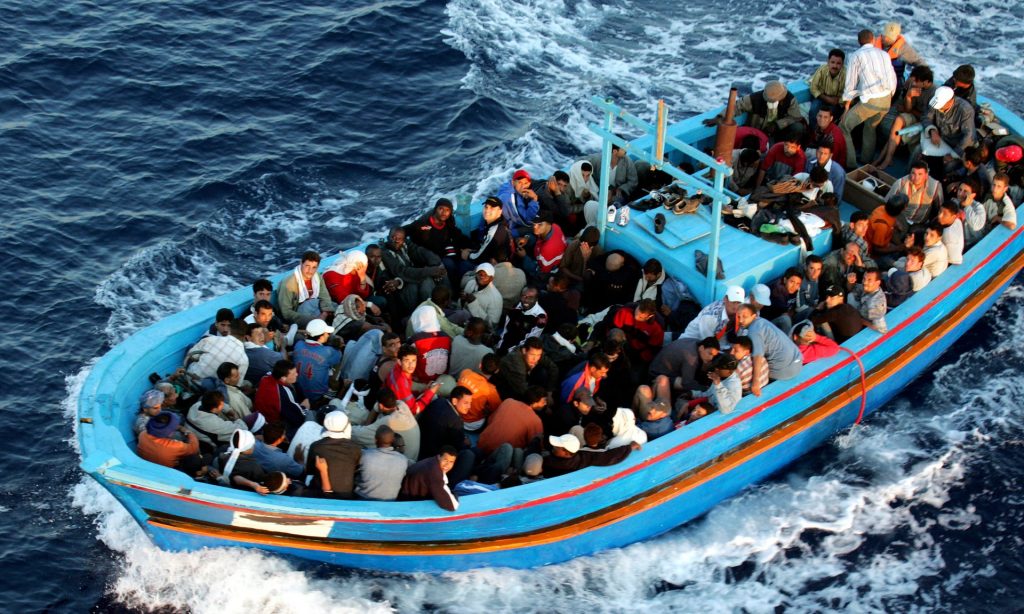
Photograph: Marco Di Lauro/Getty Images
Italy and a refugee rights group are turning to Facebook and Twitter as part of a new social media campaign to try to dissuade African refugees from making the treacherous journey to Europe over the Mediterranean.
An estimated 3,000 people have been killed this year while attempting to reach Italy’s southern shore, while 60% of refugees had their applications rejected last year because they were not deemed by authorities to be “true refugees” fleeing war.
Aware Migrants, the new campaign, features powerful video testimonials from refugees who have made it to Italy but endured physical and sexual abuse from people traffickers and others along the way. It ought to serve as a kind of “message in a bottle” thrown into cyberspace, said the interior minister, Angelino Alfano. The group will also be taking out radio advertising. “We pride ourselves on all of those feeling war and will not stop them from coming. But we cannot welcome everyone,” he said.
Initially, the vast majority of refugees heading for Italy were from war-stricken Syria, Afghanistan and Eritrea. But this year, people have also been arriving from Nigeria, Gambia, Mali, Ethiopia, Sudan and Ghana.
“Migration is a decision often based on false expectations: many migrants leave their home without a concrete project of precise idea of the socioeconomic and political situation of their country of destination,” said Aware Migrants.
The campaign, estimated at about €1.5m (£1.3m) – paid for by the interior ministry – is aimed mostly at refugees from sub-Saharan Africa, many of whom are not necessarily fleeing war but are trying to escape abject poverty in search of opportunities in Europe.
Officials at the International Organisation for Migration (IOM), who are helping to lead the campaign, said they hoped the views of refugees who had survived the journey were breaking an important and dangerous taboo. Most migrants, said Federico Soda, who heads coordination efforts at IOM, did not tell families back home about the hardships they have endured once they got to Europe. “We hope to inform this choice of whether to go,” said Soda.
In one video, a man named Tchamba tells of his initial refusal to step into an obviously unseaworthy vessel before he crossed the Mediterranean, only to be told by smugglers that he would be left for dead on the beach if he did not agree. “We had no choice. I held my baby and cried,” he said. The traffickers, he said, did not care whether anyone lived or died.
In another testimonial, a woman describes being bought out of a Libyan prison and then threatened with rape.
The video messages, which will be aired on television in 15 countries, are subtitled in English, and are also available in Italian and Arabic.
The campaign is the latest of several attempts by Italy to convince fewer refugees to make the journey, with others including a deportation and relocation programme.
Matteo Renzi, Italy’s prime minister, has insisted Italy and all of Europe had a humanitarian duty to protect people making the journey. But Renzi – like most European leaders – is keen to show he is taking steps to differentiate between refugees who are fleeing war, and those who are seeking a better life and economic opportunities.
IOM’s involvement, as one of the main refugee rights groups that has called for better treatment of those choosing to make the journey, represents a strong humanitarian interest in the project.

